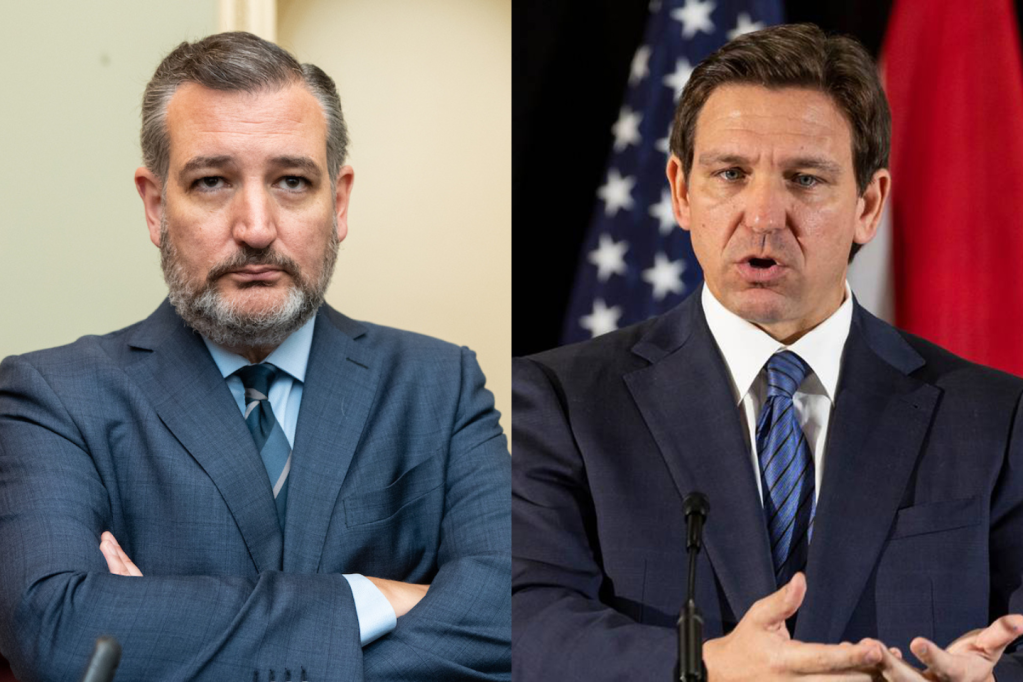The final stretch of the Conservative Party leadership race has begun, and it is, given the sudden departure of Mr. Wonderful, Kevin O’Leary, anyone’s game,
Conventional wisdom says that Maxime Bernier is now the odds-on favourite to win: The self-styled libertarian, the Albertan-from-Quebec, the enemy of supply management, the occasional alt-right-styled opponent of legislation protecting transgender Canadians. Take your pick on how you want to brand the former cabinet minister.
Videos by VICE
Given that O’Leary backed Bernier, taking into account his sizeable lead in fundraising and when you consider there’s lots of Quebecers who have just signed up to the party, according to numbers released by the Conservatives this week, that makes Bernier the odds-on favourite to win.

But does anyone else have a chance?
At a leadership debate this week in Toronto, each candidate made their final pitch — and their case for why O’Leary’s volunteers, donors, and voters should ignore the reality star’s endorsement and vote for them, instead.
Rick Peterson, an outsider who barely appears as a blip on polls of party members, said he expects to receive “half” of O’Leary’s votes.
Kellie Leitch also told reporters after the debate that she expects to be vaulted ahead, thanks to O’Leary’s departure. When VICE News pointed out that O’Leary had repeatedly admonished Leitch’s campaign rhetoric, which frequently targets immigrants, as “un-Canadian,” Leitch dismissed the concern. “You sound like Kevin O’Leary,” she said.

Erin O’Toole, who has been touted by many as a compromise candidate, also sounded optimistic about poaching O’Leary’s supporters, although it’s unclear whether he — or anyone else — can truly make enough progress in the next 30 days to make a big enough difference in the final vote.
Updated fundraising numbers, expected next week, will help paint the picture. But a potentially more important signal is how many members each campaign has signed up.
VICE News has asked all the leadership campaigns how many members they think they’ve signed up. Here’s what they told us:

When we asked Trost, he added that he had signed up additional members through some sort of pact with Lemieux, a fellow social conservative. When we asked Lemieux’s campaign about it, they wrote: “There is no formal or informal agreement between Pierre and any other candidate in this race.” Make of that what you will.
If you do the math on those self-reported numbers, it’s pretty clear that some campaigns — perhaps all the campaigns — are mis-reporting, embellishing, or outright lying. That’s to be expected.
The sum total of those campaigns that reported us some kind of number (eight of the 14 campaigns) is well over 150,000.
In essence, that means, at least by this metric, the race remains anybody’s game.
For reference, here’s how many memberships the Conservative Party says it has in each province. These numbers come direct from the party itself.
A good indication of exactly where each candidate is strong is their donor base. Here’s the breakdown of where Bernier’s donations came from in 2016 — he’s strong in Ontario, Quebec, and Alberta.
Compare that with the (limited) geography of Leitch’s donors.
And Scheer, who is strong in Saskatchewan — and virtually nowhere else.
Given that every riding in the country is worth 100 points, to be distributed based on how the members in the riding vote — irrespective of the number of members who actually live in reach riding — carrying a large amount of support in Saskatchewan or Nova Scotia isn’t insignificant.
All-in, it means that while Bernier may be well-placed to win, it’s not in the bag yet.




